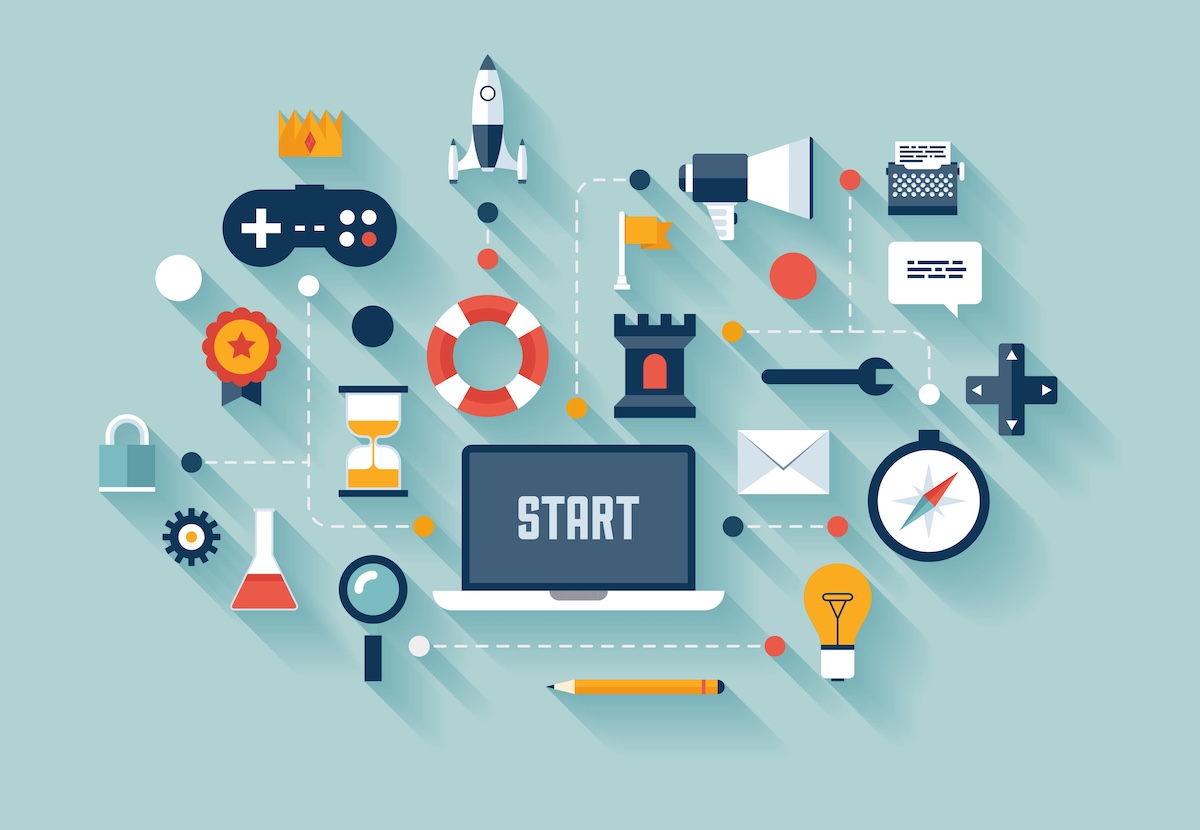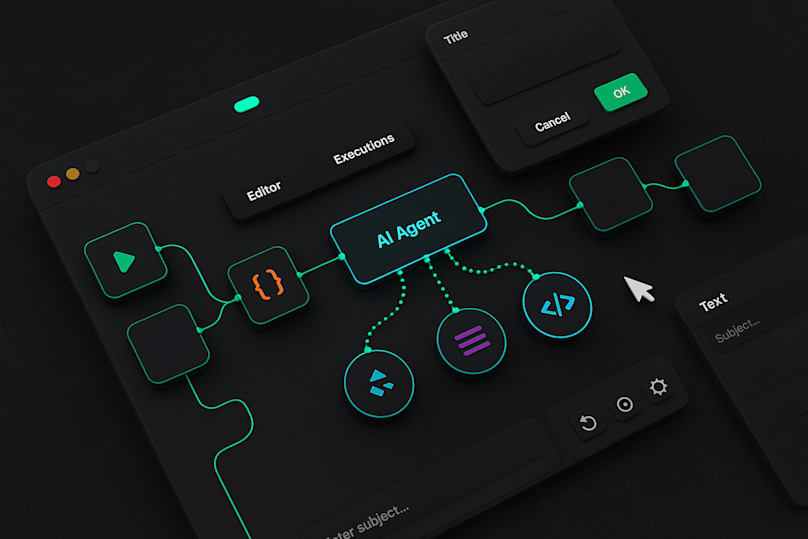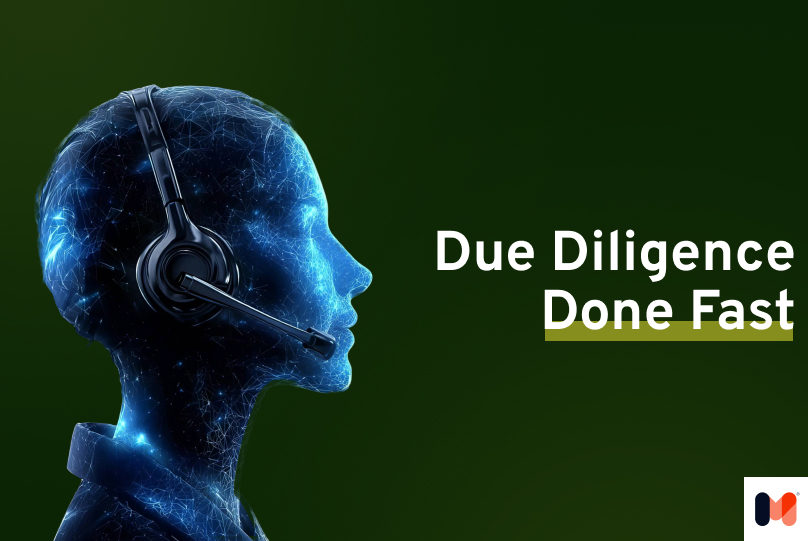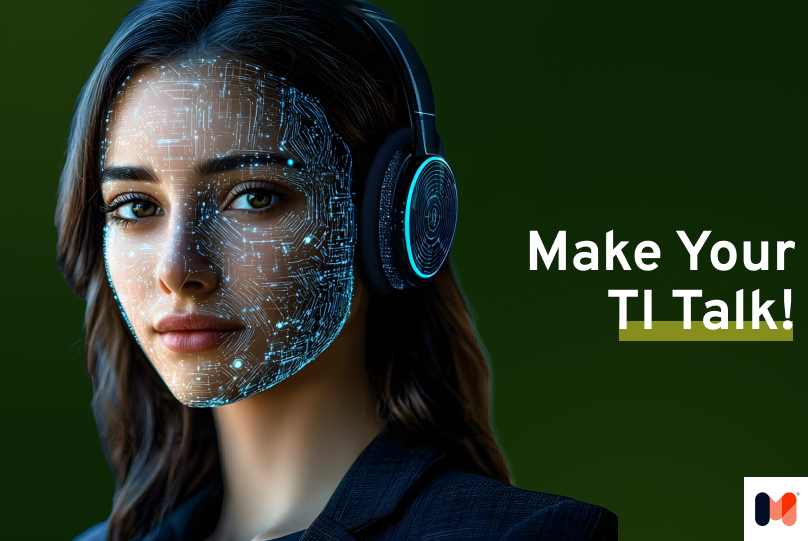Agentic Automation: Meeting Enterprise Needs
Business automation with AI agents is transforming how organizations tackle complex challenges. The explosion of data, rising customer expectations, and increasingly intricate business processes have highlighted the limitations of traditional methods. Enterprises that once relied heavily on static scripts and rigid workflows now see that these tools cannot keep pace with the speed of digital transformation.
Legacy robotic process automation (RPA) solutions, while useful for simple, repetitive activities such as form-filling or report generation, often struggle with cross-system coordination and unstructured data. They perform well when the rules are clear but falter when workflows require contextual decision-making or collaboration across multiple platforms. This is where intelligent automation driven by adaptive AI agents makes the difference.

Unlike rule-bound systems, intelligent agents leverage advanced AI models to analyze data in real time, detect anomalies, and recommend or even execute the next best action. For instance, in customer service, an AI agent can route tickets to the right department, auto-generate personalized responses, and escalate complex issues—all while learning from historical interactions to improve over time. Similarly, in finance or supply chain, agents can predict bottlenecks, optimize schedules, and align decisions with broader organizational goals.
For business leaders, the promise of AI agents goes far beyond cost savings. They enable organizations to reimagine workflows as dynamic, interconnected ecosystems rather than static pipelines. This shift creates opportunities for agility, innovation, and resilience in a volatile business environment. Yet the transition also requires strong governance frameworks to ensure responsible AI adoption. Security, compliance, and ethical guidelines must guide every deployment, so automation enhances trust rather than erodes it.
In 2025, enterprises that successfully blend intelligent agents with human expertise will unlock unprecedented value. Employees will spend less time on routine tasks and more time on strategy, innovation, and customer engagement. As AI agents evolve, the balance between efficiency and oversight will shape the next chapter of enterprise automation—ushering in a future where technology and people collaborate seamlessly to drive progress.
Why Workflows Stall, and How Agents Work to Fix Them

Despite investments in AI tools and digital transformation, workflows remain stuck in silos, hampered by manual steps and fragmented systems. Persistent issues include:
Incompatibility between legacy platforms and new AI tools
Rigid automation unable to flex with changing processes
Insufficient real-time insights for proactive action
Ineffective orchestration across business units
These challenges reveal why specialized AI agents are becoming essential. Intelligent agents work alongside enterprise applications to orchestrate and automate workflows—bridging gaps, boosting productivity, and enabling business agility.
Specialized AI Agents: The New Workforce for Adaptive Automation
Organizations are deploying specialized AI agents throughout the workforce. These agents automate routine tasks, facilitate knowledge sharing, and optimize enterprise systems by:
Dynamically routing invoices and approvals across departments
Coordinating repetitive tasks in platforms like Microsoft Teams and other enterprise systems
Assisting with document generation, code review, and process optimization
Integrating seamlessly into established tech and enterprise applications
AI agents work autonomously or as assistants, depending on levels of autonomy needed—adapting to both predictable routines and evolving scenarios
Automate Workflows: ROI, Insights, and the Future of Business

Adopting agentic automation isn’t just a tech upgrade—it’s a strategic pivot that redefines how enterprises operate. Unlike traditional automation, which follows rigid, rule-based scripts, intelligent AI agents are adaptive, context-aware, and capable of making decisions in real time. This shift transforms automation from a cost-cutting tool into a growth enabler. The ROI of intelligent agents is multi-dimensional and increasingly measurable:
Fewer manual errors and significantly lower operational expenses as repetitive tasks—such as data entry, compliance reporting, or invoice processing—are handled with near-zero oversight.
Faster cycle times across functions, from resolving customer support tickets in minutes instead of hours to accelerating financial reconciliations and supply chain approvals.
Enhanced agility and responsiveness to market shifts, enabling businesses to reallocate resources dynamically, adjust pricing strategies instantly, and scale workflows without additional headcount.
New levels of data-driven insights powering business decisions, as agents continuously analyze streams of structured and unstructured data to detect anomalies, forecast demand, and surface opportunities.
To maximize these benefits, organizations need a robust AI automation roadmap, which covers three essential areas:
Pinpointing value hotspots where intelligent agents drive the most impact—whether in customer experience, operations, finance, or compliance.
Training and reskilling the workforce to collaborate effectively with AI assistants, turning employees into supervisors and strategists rather than task executors.
Continuously measuring, refining, and iterating automation strategies to ensure they adapt to evolving business needs and regulatory environments.
Enterprises that embrace next-gen AI agents in 2025 will not only streamline operations but also create competitive advantages that compound over time. Far from being a back-office efficiency play, agentic automation is becoming a front-line driver of innovation, resilience, and long-term market leadership
Industry Best Practices: Implementing Responsible AI and Agentic Automation

Agentic automation succeeds when it is planned and deployed with care. Key strategies include:
Responsible AI in Business
Develop clear guidelines and oversight for deploying autonomous agents
Prioritize transparency, auditability, and compliance, especially in regulated industries
Ensure responsible AI practices by embedding explainability into all enterprise applications
Overcoming Implementation Hurdles
Emphasize change management: communicate the value of AI assistants to stakeholders and provide upskilling opportunities
Build agile, cross-functional teams—for example, pairing tech experts with business analysts to pilot new solutions
Invest in scalable, secure data pipelines and infrastructure capable of supporting large-scale multi-agent ai systems
Case Studies: Tangible Impact
Real-world examples of agentic automation include:
A global retailer reducing order processing costs by 40% by automating inventory and logistics with intelligent agents
A financial institution automating compliance with AI tools, leading to faster audits and lower risk
Manufacturing leaders implementing predictive maintenance and workflow automation to increase throughput and reliability
Tools, Workforce Evolution, and Future Direction of Tools Transforming Teams and Routine Tasks

Agentic automation, powered by advanced AI tools, revolutionizes workforce efficiency by automating not just repetitive tasks, but also supporting collaboration in platforms like Microsoft Teams. Enterprises use OpenAI-powered assistants and bespoke intelligent agents to:
Integrate automation across legacy systems and new tech stacks, ensuring that even decades-old infrastructure can interact seamlessly with cutting-edge SaaS and cloud platforms.
Orchestrate end-to-end workflows in SaaS business models, allowing billing, onboarding, customer success, and compliance to be managed dynamically by AI agents that communicate across applications.
Streamline both customer and internal operations, reducing bottlenecks and freeing teams to focus on higher-value activities.
This evolution represents more than just cost savings—it signals a workforce transformation. Employees once consumed by manual, repetitive processes are now liberated to focus on creativity, innovation, and strategy. Instead of spending hours consolidating data from multiple systems, a marketing analyst might rely on an AI agent to deliver actionable insights, while they focus on campaign design and customer engagement.
The collaborative dimension of these agents is especially powerful. By embedding directly into workplace platforms like Microsoft Teams, Slack, or Google Workspace, AI agents can facilitate cross-departmental coordination in real time—summarizing conversations, tracking tasks, and triggering automated actions. For instance, a support ticket escalated in Teams could automatically update the CRM, notify a service manager, and schedule a follow-up, all without human intervention.
Looking ahead to 2026, this convergence of intelligent agents and workforce platforms will fundamentally reshape organizational culture. Success will not be defined solely by efficiency, but by how effectively human teams and AI systems co-create value. Enterprises that embrace this symbiosis will outpace competitors, creating environments where technology amplifies human strengths rather than replacing them.
How Agents Work Beside Humans
AI assistants increasingly act as copilots, guiding teams through complex tasks across multiple enterprise applications—whether drafting reports, analyzing data, or automating compliance checks. Beyond individual support, multi-agent AI systems collaborate to handle more nuanced, interdependent operations, dynamically scaling automation as business demands evolve. Crucially, this partnership doesn’t eliminate the human role; it elevates it. Human oversight ensures responsible AI practices, providing ethical guardrails, validating outputs, and offering continual feedback that agents use to self-improve. The result is a symbiotic model where humans drive strategy while agents amplify execution and efficiency.
Insights: Harnessing Multi-Agent Systems and Driving Business Automation Forward

As agentic automation matures, enterprise success stories will center on two defining capabilities that separate next-generation systems from earlier automation efforts.
First, collaborative agents will become the backbone of enterprise ecosystems. Unlike siloed bots that handle single tasks, collaborative AI agents can communicate with each other, coordinate across functions, and manage interdependent processes. Imagine an agent in procurement automatically sharing data with a compliance agent, which in turn triggers a finance agent to adjust payment schedules—seamlessly orchestrating workflows that once required multiple departments and countless hours of human oversight. In supply chain operations, this collaboration ensures that disruptions are detected in real time, inventory adjustments are made automatically, and sales teams are informed instantly. The result is a tighter, more resilient system where silos collapse and decision-making accelerates.
Second, self-improving AI agents will define the future of automation. These systems don’t just execute rules; they learn from feedback, refine their performance, and proactively optimize workflows. For instance, an AI agent managing customer support tickets might recognize recurring pain points, propose changes to FAQs, and automatically escalate systemic issues to product teams. In compliance, agents can continuously update their logic in response to new regulations, ensuring organizations remain audit-ready without the constant burden of manual intervention.
Industry leaders that embrace these capabilities are already reporting transformative outcomes: higher productivity, stronger operational resilience, and significant cost savings. But the true value lies in the compounding effect—each cycle of learning and collaboration makes the system smarter, faster, and more efficient. As we move through 2025, businesses that strategically adopt collaborative and self-improving agents won’t just gain incremental efficiency; they’ll redefine competitive benchmarks, setting new standards for how enterprises adapt, grow, and innovate in an increasingly automated world.
Matt Sadowski
CEO of Mobile Reality
Transform Your Business with Custom AI Agent Solutions!
Leverage our expertise in AI agent development to enhance efficiency, scalability, and innovation within your organization.
Expert development of modular and scalable AI software solutions.
Integration of Large Language Models (LLMs) for advanced capabilities.
Customized AI agents tailored to your business needs.
End-to-end support from design to deployment.
Enhance decision-making and operational efficiency with AI.
The Future: Embrace an Intelligent Workflow
Agentic automation represents the future of business. By strategically integrating intelligent agents, companies can:
Transform workflows and automate processes at every level of autonomy
Empower teams with the tools to scale productivity and drive insights
Fortify compliance and responsible AI practices as automation becomes more autonomous
Organizations that prioritize agentic automation, workforce upskilling, and insight-driven strategy will define the next era of industry leadership
Explore More on Agentic Automation and AI-Driven Business:
For guidance on integrating intelligent agents into your enterprise systems, or to explore career opportunities in agentic automation, contact our team or visit our careers page
Practical Guide: Activating Agentic Automation in Your Business
The future workforce combines human acumen with specialized AI agents and advanced automation tools. Success requires more than adopting the technology—it demands a structured approach to integration, scaling, and change management. Enterprises that thoughtfully roll out agentic automation will build a workforce that thrives on efficiency, trust, and collaboration.
Integrating Agents Across the Enterprise
To begin, organizations must ensure that their existing platforms support seamless integration with leading AI tools and specialized agents. This involves building a foundation where business automation with AI agents can connect legacy systems with cloud-based applications, minimizing silos. A modular, layered automation strategy is often most effective: start with migrating repetitive, rule-based tasks, then expand into orchestrating more complex workflows across departments. Launch small pilots in high-value areas such as customer service or compliance, measure their impact, and refine approaches before scaling widely.
Scaling Insights and Adoption
Adoption goes beyond deploying technology—it’s about changing how people work. Assign dedicated staff to interface directly with AI copilots and assistants, helping build familiarity and trust. Ongoing training is crucial; employees should be continuously upskilled on the latest advances in artificial intelligence, intelligent automation, and emerging AI models. Agile squads, blending technical experts with domain specialists, can accelerate iterative deployment and drive feedback-driven improvements. By embedding agents into daily business processes, enterprises foster a culture where human expertise and machine intelligence complement one another.
Managing Change and Building Trust in Responsible AI
Finally, managing change requires strong communication. Leaders should clearly articulate the benefits of agentic automation while addressing concerns about disruption or job displacement. Regular feedback loops, transparent reporting, and visible success stories help reinforce trust. Establishing internal champions—enthusiastic early adopters who share insights and mentor peers—ensures momentum spreads across the organization. With a thoughtful roadmap, enterprises can balance innovation with responsibility, creating a resilient, future-ready workforce powered by AI agents.
Discover more on AI-based applications and genAI enhancements
Artificial intelligence is revolutionizing how applications are built, enhancing user experiences, and driving business innovation. At Mobile Reality, we explore the latest advancements in AI-based applications and generative AI enhancements to keep you informed. Check out our in-depth articles covering key trends, development strategies, and real-world use cases:
- AI on a Budget: Understanding the Costs of AI Applications
- The Role of AI in the Future of Software Engineering
- Unleash the Power of LLM AI Agents in Your Business
- Data Science vs Machine Learning : What's the Difference?
- Generative AI in software development
- Mastering Automated Lead Generation for Business Success
- Scale Business with AI Arbitrage Agency's Solutions
- Generate AI Social Media Posts for Free!
Our insights are designed to help you navigate the complexities of AI-driven development, whether integrating AI into existing applications or building cutting-edge AI-powered solutions from scratch. Stay ahead of the curve with our expert analysis and practical guidance. If you need personalized advice on leveraging AI for your business, reach out to our team—we’re here to support your journey into the future of AI-driven innovation.





